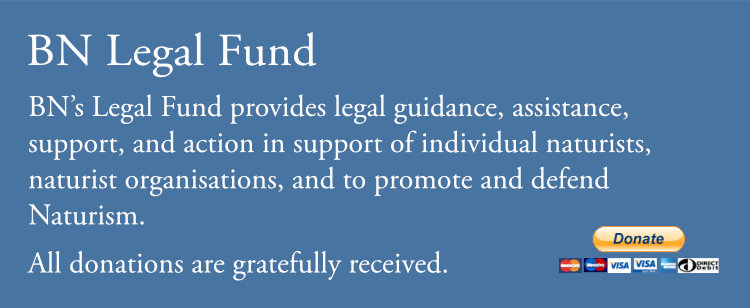From 2017
An article in the UK’s version of the Huffington Post piqued our interest. It said, ‘We may open up conversations with our daughters about how they feel about their bodies, but when was the last time you did this with your son? The number of men admitted to hospital with eating disorders has risen by 70% in the past six years and male sufferers – and the people around them – may not recognise their symptoms due to persistent gender stereotypes. According to a survey 55% of 18-year-old boys surveyed would consider changing their diet to look better and 23% believed in a perfect male body.’ We spoke to some young Naturist men to get their views – and their own interesting stories.
What Makes Naturists Different? by David
In the mainstream media, in adverts and even clothing catalogues, I’m used to seeing chiselled abs and bulky biceps. I wouldn’t say I’m affected by this much nowadays, but subconsciously, I suppose the expectations and expected standards are still there to a degree. I can easily imagine other boys or men aspiring towards these sky-high targets, or in other cases, suffering disappointment and depression when they realise that it’s not within their reach. Does that sound familiar? If we added some ‘size zero’ into the mix, we’d have the same kind of dilemma for women. Nonetheless, the objectification of guys in the consumer world is just as real – it’s just been lagging behind until now. It’s commonly believed that males don’t talk to each other about their feelings that often. We all know the stereotypes about Brits with stiff upper lips. The same goes for men who bottle up their emotions and refuse to ask for help, even when it’s right in front of them. Asking for directions is one scenario that springs to mind. So, it’s understandable that men still don’t talk a lot about their emotions. We’ve made progress in the last couple of decades regarding mental health issues which allow people to reach out and get the support they need. Still, not everyone is going to have the same kind of supportive friends or family around them. What makes Naturists different?
Any social Naturist will know how open and accepting the community is. With everyone on equal grounds and without fear of being judged, they can accept themselves as who they are. Once that feeling of self-confidence is in place, outside media has less impact; those images can be separated from the ‘reality’ of what ‘average’ people look like. It’s no surprise that we continue to get confirmed studies showing that naturists are happy, healthy people. But is that a prerequisite, or is it a consequence of adjusting to the lifestyle? Having been a casual observer for two years and a proper member of BN for three months, I wouldn’t say I know enough people to be sure yet, but I would wager that it’s a mix of both, depending on each person’s particular background. I’ll tell you a little about mine.
Most of my life, I didn’t really have a chance to think objectively about male body image. I was mostly resigned to the fact that it wasn’t something I’d ever have to worry about or aspire to, mostly due to my skin conditions. Since I was a young child, I have suffered from dermatitis and eczema over my whole body, making it sore, red, itchy and flaky. No matter what kinds of treatments, creams and diets my family tried with me, nothing seemed to work. In the last three years, things had improved significantly; naturally after the age of 16, with improvements in medication and medical advice. So with the first hurdle overcome, I decided it was finally time for me to focus on the other thing holding back my self-confidence: my figure. I’ve always been skinny because of high metabolism, so unlike many men and women who want to shed the pounds, I was always struggling to put on weight. After putting more care into the food I ate and finally making the move to start working out at the gym, I finally got a taste for what it’s like to have some body confidence. I can lift twice as much as I could when I did no exercise, and I think it shows. Some people would still call me ‘skinny’ which does irritate me slightly. Their perception of ‘average’ is probably higher than it should be, either due to those aforementioned ideals, or perhaps when compared to their friends who put in four times as many hours in the gym as I do. I often wonder what the motivation is for the others around me when I’m there. Are they still unsatisfied with their appearance, despite being able to bench-press their own weight? Are they addicted to working out? Or is it a perfectly rational, healthy hobby? I can’t tell. Thankfully, I’m undeterred, since all I’m aiming to do is satisfy my own goals.
That was the time when I decided it was time to join the group of people I admired the most; those who were happy to be themselves and nothing more. I’ll freely admit that by this point, after a lifetime of social anxiety and self-pity, all I really wanted was peer validation. I was delighted to finally have some (I know I would have joined anyway, regardless of my appearance). From the first dozen swims at Naturist London, I got over the shyness and anxiety of showing my skin in public. Beyond that, I took part in the ZSL Streak for Tigers twice, raising money for charity, having fun and making friends while doing so. Now, as of this summer, I’m a YBN member and I’m not looking back...
Edited by Andrew Welch













